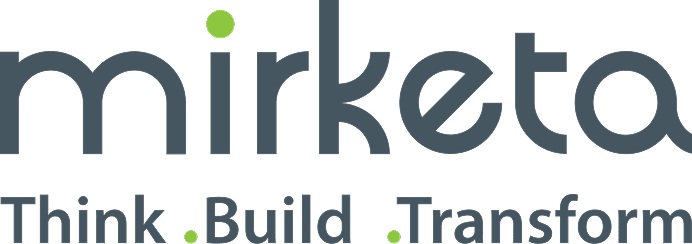Healthcare & AI – Past, Present and the Future
Author
January 28, 2023
Remember how the 80s and 90s cinematic portrayals of futuristic healthcare fascinated us, brought us to the edge of our seats, and made us dreamers. Cut to now, looking back it feels the way our world has progressed and continues to progress, the dreams are setting into realities. These films depicted instant disease diagnoses, regenerated organs, and customized treatments, igniting our imagination with possibilities seemingly which could have only been termed as fiction. While these visions once seemed distant, the world of healthcare has and is rapidly progressing, with real-world advancements that align with these once-odd portrayals.
Here is a broad take on the technological strides in healthcare over time. Let’s explore some of the work in progress by companies, researchers, and the future this market holds bringing us closer to the futuristic healthcare landscape shown on the silver screen.
1. Instant Diagnostics and Telemedicine:
In the past, Movies like “Star Trek” envisioned devices like the tricorder, which could diagnose illnesses and injuries remotely.
The notion of swift diagnoses depicted in those films today resonates with our expanding capabilities. Telemedicine, empowered by rapid internet and ubiquitous mobile devices, is redefining patient care. Though handheld diagnostic devices like those on screen may not be commonplace, telemedicine is bridging healthcare gaps, making quality medical attention accessible everywhere.
Companies like Butterfly Network are developing handheld ultrasound devices that allow medical professionals to visualize internal structures in real-time, bringing us closer to instant diagnoses. Coupled with telemedicine platforms like Amwell & Teladoc Health, patients can consult specialists remotely, mirroring the seamless healthcare interactions we once watched on screen.
The notion of rapid diagnostics is rapidly materializing. The global telehealth & telemedicine market in terms of revenue was estimated to be worth $87.8 billion in 2022 and is poised to reach $285.7 billion by 2027, growing at a CAGR of 26.6% from 2022 to 2027. (Research Report)
2. Personalized Medicine and Genetics:
Films like “Gattaca” explored a future where genetic engineering and modification were common, allowing for the creation of “designer babies.”
Today while we haven’t reached the level of genetic engineering depicted in such movies, the precision-tailoring of treatments portrayed in movies is seemingly more and more plausible with our rapidly growing understanding of genetics. The deciphering of the human genome and genetic research’s leaps are shaping the landscape of personalized medicine.
The groundwork for personalized medicine is being laid by companies such as Verily and Tempus. They are aggregating vast amounts of genetic and clinical data to tailor treatments based on individual genetic profiles. Companies like 23andMe and Illumina are pioneering the genetic frontier. They offer genetic testing that reveals insights into individual health predispositions, propelling us towards the personalized treatments envisaged in cinema. As we untangle these genetic complexities, we are getting closer to therapies, precision medications and interventions personalized to an individual’s unique genetic makeup.
The Global Genetic Testing Market is forecasted to grow by USD 7103.8 mn during 2022-2027, accelerating at a CAGR of 12.78%. (Research Report)
3. Robotic Surgery and Minimally Invasive Procedures:
Movies like “I, Robot” showcased humanoid robots that could perform complex medical procedures autonomously.
While humanoid surgical robots remain on the horizon, the incorporation of robotics in surgery is evidence to progress. Surgeon skills combined with robotic precision is redefining surgical realms, enabling procedures with unparalleled accuracy and expedited patient recovery.
Companies like Medtronic and Intuitive Surgical are reshaping surgery with robotic-assisted systems. Intuitive Surgical, the company behind the da Vinci Surgical System, embodies the convergence of medicine and technology. Their robotic-assisted surgical platform enables minimally invasive procedures with enhanced precision, aligning with the cinematic visions of robots performing intricate surgeries.
The global surgical robots market in terms of revenue was estimated to be worth $8.5 billion in 2022 and is poised to reach $18.4 billion by 2027, growing at a CAGR of 16.6% from 2022 to 2027. (Research Report)
4. Regenerative Medicine and Tissue Engineering:
Movies like “The 6th Day” speculated about the ability to clone and replace body parts on demand.
The concept of growing organs in a lab was once the domain of fantasy. Today, our advancements in regenerative medicine are materializing into reality.
Modern Meadow, and Organovo are exploring the realms of bioprinting and tissue engineering. Although we’re not yet growing fully functional organs, the company’s efforts to produce bio-fabricated materials are reminiscent of the on-screen concept of regrown organs. This progress holds potential for transforming transplantation procedures. Additionally, the strides that 3D printing technology has made in the healthcare prosthetics space in recent years is commendable helping humans and animals both.
The global regenerative medicine and tissue engineering market in terms of revenue is projected to reach USD 40.6 billion by 2027 from USD 12.2 billion in 2022, at a CAGR of 27.2%. (Research Report)
5. AI in Healthcare:
AI was often depicted as a highly intelligent, conversational entity that could diagnose diseases instantaneously, as seen in “2001: A Space Odyssey.”
While sentient AI diagnosticians may be a distant prospect, the current role of AI in healthcare is no less groundbreaking. Our strides in machine learning and data analysis are driving early disease detection, drug innovation, and treatment optimization. The parallels between cinematic AI marvels and real-world AI-powered healthcare solutions are undeniable.
IBM Watson Health is a prominent player in the integration of AI into healthcare. Their AI-driven solutions analyze vast medical datasets to aid in diagnostics, treatment recommendation & planning, and drug discovery. PathAI is using machine learning to assist pathologists in diagnosing diseases from medical images.
The AI in Healthcare market in terms of revenue is projected to grow from USD 14.6 billion in 2022 to USD 102.7 billion in 2028, at a CAGR of 47.6%. (Research Report)
6. Nanotechnology and Targeted Therapies:
Films like “Fantastic Voyage” featured miniaturized microscopic-sized vehicles that could navigate within the human body for medical purposes.
Although micro-robots navigating the body are still in the domain of imagination, nanotechnology is revolutionizing healthcare interventions. The development of nanoparticles for targeted drug delivery and imaging resonates with the futuristic healthcare possibilities shown in films.
Nanotechnology companies like Bind Therapeutics under Flagship Pioneering & Nanobiotix are developing nanoparticles for targeted drug delivery and therapies.
The global market for Nanotechnology is estimated at US$42.2 Billion in the year 2020, is projected to reach a revised size of US$70.7 Billion by 2026, growing at a CAGR of 9.2%. (Research Report)
Conclusion
Though there are several research reports out there talking about & quoting different projected industry revenue numbers, but all of them point towards the same fact that the gap between cinematic imagination and real-world progress in healthcare is steadily closing. All these numbers surely tell the length and breadth of the scope and enormous potential the future holds for all of us in the healthcare space. While we might not have achieved the precise scenarios depicted on screen, the ongoing work of these companies and researchers is undeniably steering us toward a healthcare landscape that mirrors the futuristic visions of the past. The fusion of technology, innovation, and medical expertise is propelling us into an era where the boundaries of what’s possible continue to expand, and where the once-fantastical future of healthcare is becoming an exciting present reality.
We at Mirketa love staying ahead of the technology curve helping our clients with business consultation, business process reengineering and the actual implementation. We are Salesforce Gold (Crest) Partners enabling the Healthcare & Lifesciences space to stay ahead in the game. We have helped numerous healthcare clients with our Salesforce Health Cloud expertise with their implementation and adoption. Do reach out to us for any questions, we would love to help.
Pranshu Goyal, Director of Products at Mirekta, states: “We envision DSM to be used by every small to a medium-sized organization dealing with bad data and want to get rid of duplicates easily with no cost. We have faced issues dealing with duplicates in our organization. That inspired us to make a solution that is not only simple to use but can be used widely to make the organization’s data clean to make them more efficient and productive. We want DSM to be a solution for every organization looking for duplicate management capability better than the Salesforce out-of-the-box solution with no additional cost.”
Recent Posts
-
 Salesforce API Testing – The Modern QA Approach for Reliable Integrations05 Jan 2026 Blog
Salesforce API Testing – The Modern QA Approach for Reliable Integrations05 Jan 2026 Blog -
 Transforming SMB Sales with Salesforce Commerce Cloud12 Nov 2025 Blog
Transforming SMB Sales with Salesforce Commerce Cloud12 Nov 2025 Blog -
 Generative AI Testing tools03 Nov 2025 Blog
Generative AI Testing tools03 Nov 2025 Blog -
 Mirketa Unveils Next-Gen AI Solutions to Redefine the Future of Work Across Industries29 Jul 2025 Press Release
Mirketa Unveils Next-Gen AI Solutions to Redefine the Future of Work Across Industries29 Jul 2025 Press Release -
 Salesforce Implementation School Universities Higher Education23 Jul 2025 Blog
Salesforce Implementation School Universities Higher Education23 Jul 2025 Blog -
 Salesforce Health Cloud Implementation Partner: A Complete Guide23 Jul 2025 Blog
Salesforce Health Cloud Implementation Partner: A Complete Guide23 Jul 2025 Blog -
 XML Parsing: Using MINIDOM Vs Element Tree (etree) in Python02 Jul 2025 Blog
XML Parsing: Using MINIDOM Vs Element Tree (etree) in Python02 Jul 2025 Blog -
 A step by step Guide to create Salesforce web-to-lead form30 Jun 2025 Blog
A step by step Guide to create Salesforce web-to-lead form30 Jun 2025 Blog -
 How AI is Transforming User Experience Design in 202526 Jun 2025 Blog
How AI is Transforming User Experience Design in 202526 Jun 2025 Blog -
 How a Salesforce NPSP Consultant Can Elevate Nonprofit Impact25 Jun 2025 Blog
How a Salesforce NPSP Consultant Can Elevate Nonprofit Impact25 Jun 2025 Blog -
 Salesforce Load and Performance Testing: Essentials, Importance & Execution23 Jun 2025 Blog
Salesforce Load and Performance Testing: Essentials, Importance & Execution23 Jun 2025 Blog -
 Salesforce Website Integration Boost Leads, Automation & Customer Experience11 Jun 2025 Blog
Salesforce Website Integration Boost Leads, Automation & Customer Experience11 Jun 2025 Blog -
 Driving Results in Manufacturing with Salesforce Manufacturing Cloud11 Jun 2025 Blog
Driving Results in Manufacturing with Salesforce Manufacturing Cloud11 Jun 2025 Blog -
 Accelerating Growth with NetSuite SuiteCommerce02 Jun 2025 Blog
Accelerating Growth with NetSuite SuiteCommerce02 Jun 2025 Blog -
 Salesforce Service Cloud Services streamlining operations29 May 2025 Blog
Salesforce Service Cloud Services streamlining operations29 May 2025 Blog -
 AI for Nonprofits: Mirketa & Exec Precision Webinar27 May 2025 Press Release
AI for Nonprofits: Mirketa & Exec Precision Webinar27 May 2025 Press Release -
 AI for Nonprofits: Use Cases, Tools & Implementation Strategies20 May 2025 Webinar
AI for Nonprofits: Use Cases, Tools & Implementation Strategies20 May 2025 Webinar -
 Javascript Frameworks for Salesforce Lightning Design System18 May 2025 Blog
Javascript Frameworks for Salesforce Lightning Design System18 May 2025 Blog -
 Building a Smart Campus with Salesforce Student Information System: A Road to Smarter Education16 May 2025 Blog
Building a Smart Campus with Salesforce Student Information System: A Road to Smarter Education16 May 2025 Blog -
 Salesforce Nonprofit Cloud: Benefits & Consultant Role15 May 2025 Blog
Salesforce Nonprofit Cloud: Benefits & Consultant Role15 May 2025 Blog

























